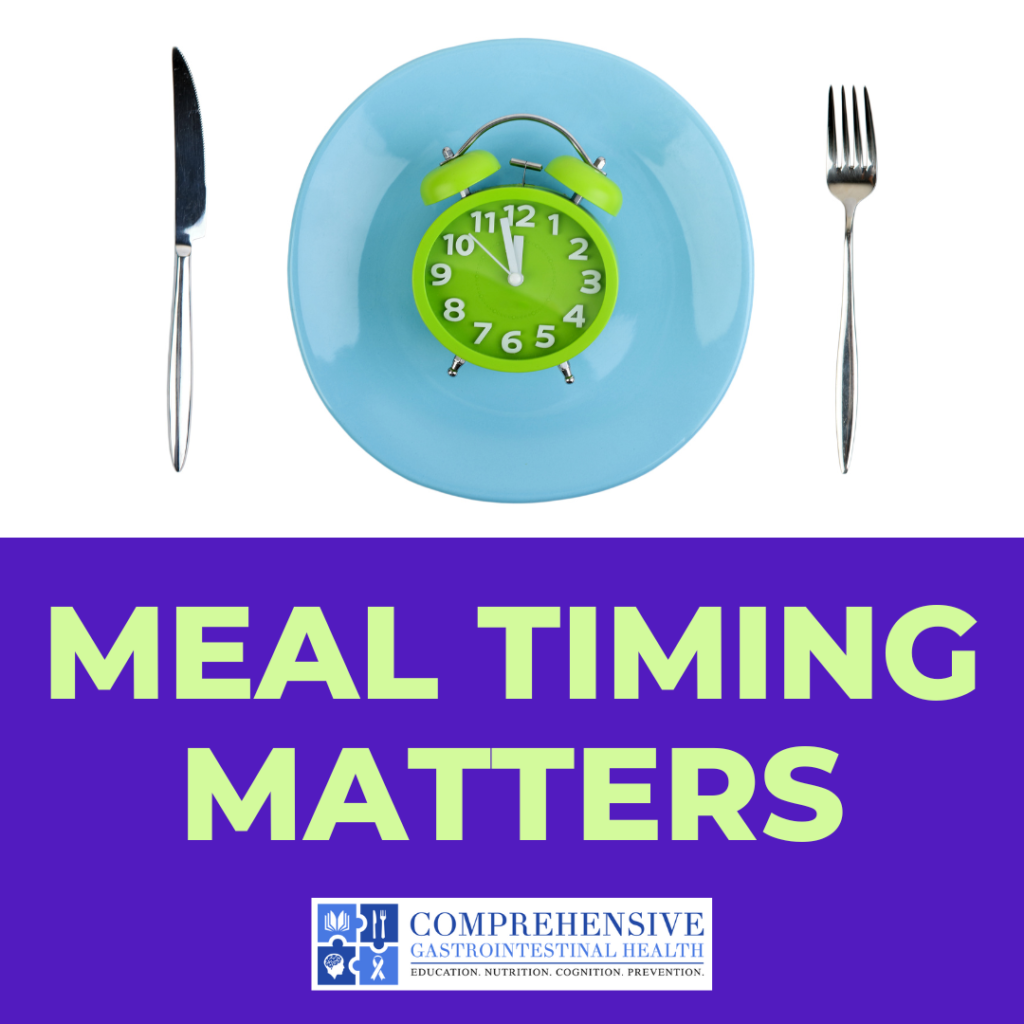MEAL TIMING MATTERS (Hint: Earlier is Better)

Two rigorous studies reviewed in the journal Cell Metabolism provide complimentary support for eating earlier in the day. Researchers at Brigham and Women’s Hospital investigated the effect of early versus late meal timing when daily calories were kept constant. The early group ate at approximately 9 am, 1 pm and 5 pm while the late group skipped breakfast and ate at 1 pm, 5 pm and 9 pm each day. Their results showed that participants who ate later in the day were hungrier, burned fewer calories and altered their adipose tissue gene expression to favor fat storage.
Further, a study conducted by researchers at the University of Aberdeen in Scotland and the University of Surrey in England showed that shifting calorie intake earlier in the day resulted in reduced hunger and appetite. Morning-loaded participants consumed 45% of their calories at breakfast, 35% during lunch and 20% at dinner. Evening-loaded participants consumed the mirror opposite proportions. During this month-long study, both the morning-loaded and evening-loaded diets showed similar weight loss with no difference in daily metabolic rate. However, it is thought that over a longer period of time, reductions in hunger and appetite would support weight management efforts.
TAKE HOME MESSAGE
The results of both studies support prior evidence that late-day eating is counterproductive to weight loss and weight maintenance efforts, increasing obesity risk.
- Think twice before grabbing that evening snack
- Try not to skip breakfast
- Consider front-loading your daily calories
- Close the kitchen about 4 hours before bedtime, or by about 6-7pm
Sources:
